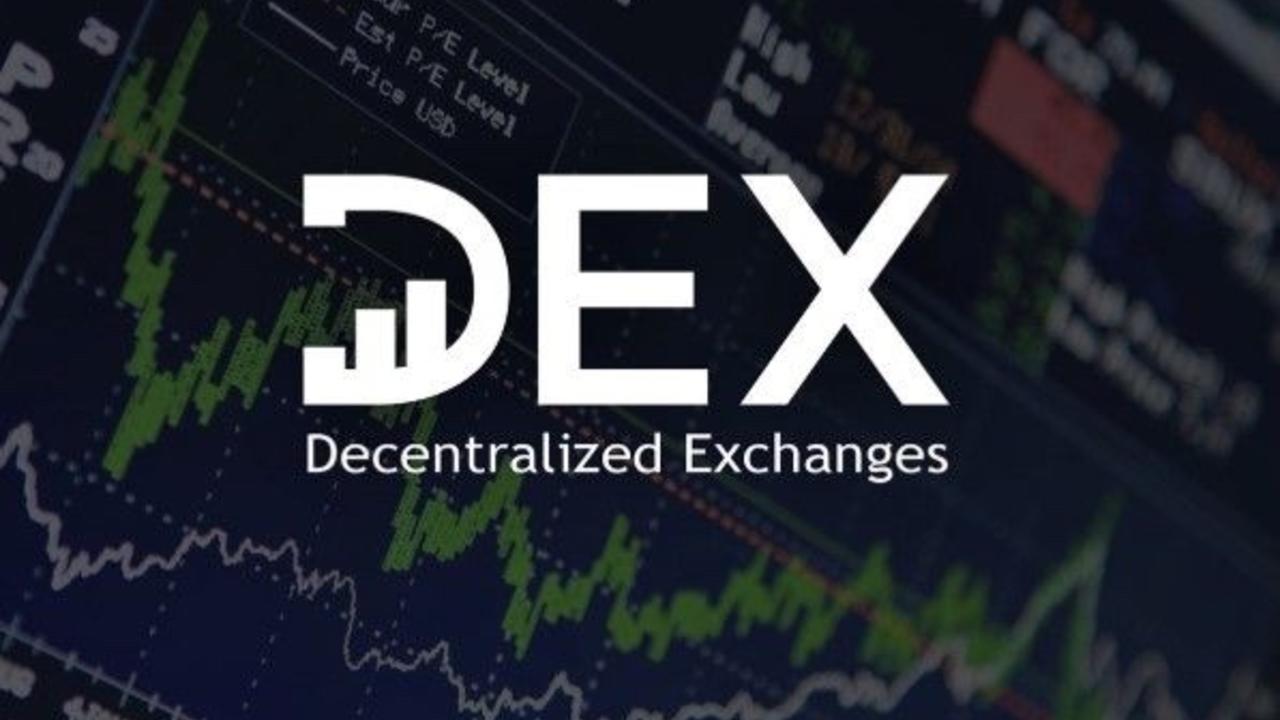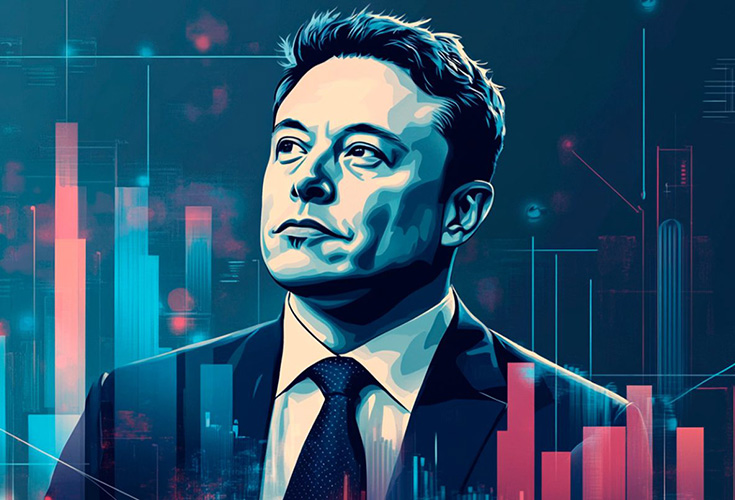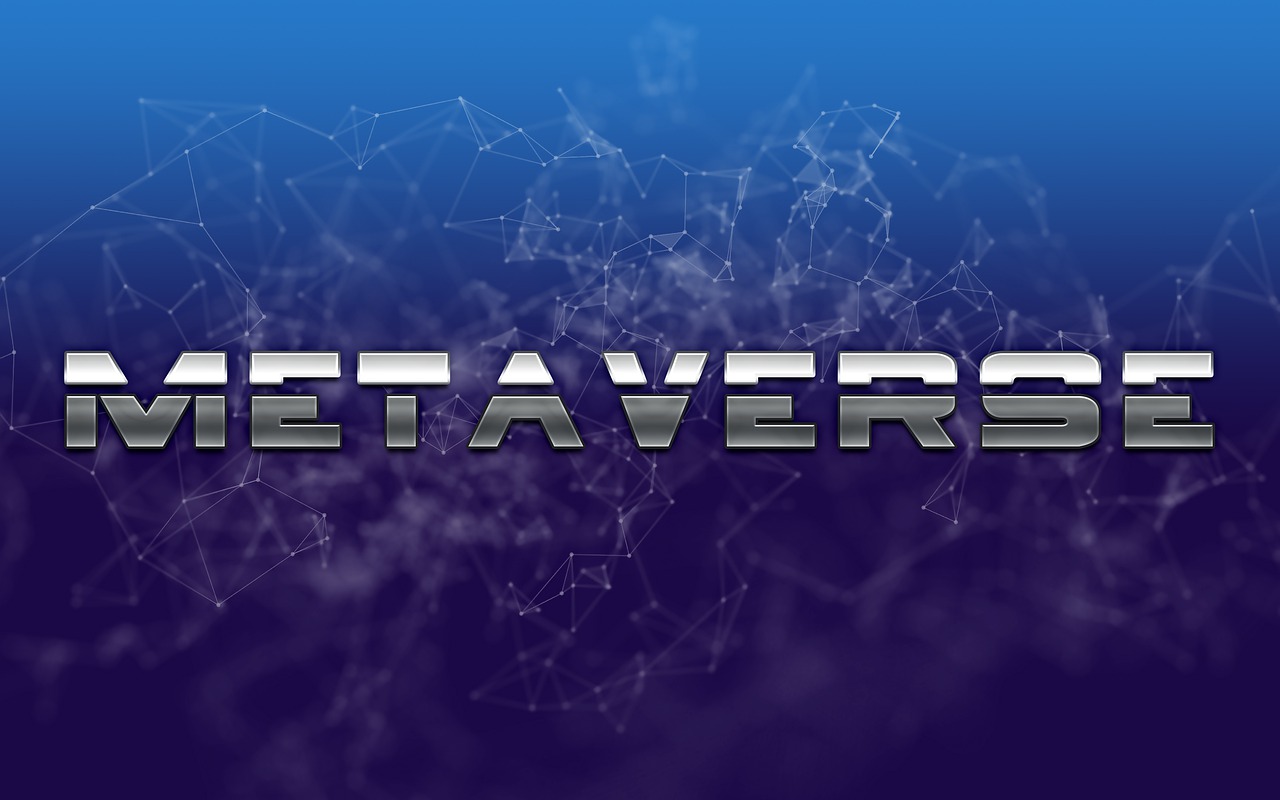The Top 10 Picks: Best Decentralized Exchanges (DEX) Of 2023

All prominent Decentralized Exchanges (DEX) are accessible to 0x. Bancor, Uniswap, Dodo, Curve, Mooniswap, and Balancer are some of these DEXs. You can also use 0x’s exclusive liquidity. Open order books, professional market makers, and private liquidity pools are all available on the DEX.
However, in 2022, decentralized finance (DeFi) continues to gain momentum, bringing us closer to a decentralized world. The main drawback of centralized exchanges is their reliance on a central authority, typically a company that controls your funds and personal data, similar to a traditional bank.
Moreover, these exchanges employ the order-book model commonly found in traditional stock exchanges, where a list of buy and sell orders is maintained. Take KuCoin, for example, which operates using the standard order-book model.
In this model, the Exchange is a custodian, holding assets and facilitating transactions by matching buyers with sellers. Asset custody, asset listing, liquidity, and headquarters are characteristics of centralized exchanges. Additionally, the director board and centralized trade execution are also key features.
Fortunately, all these aspects can be decentralized, precisely what decentralized exchanges aim to achieve. These exchanges function as entirely peer-to-peer trading platforms governed by software and users. When using decentralized exchanges, you only need to connect your wallet, such as MetaMask, and you can trade directly from there.
This approach ensures privacy and efficiency. It eliminates the need to set up a bank account and trading account. This often involves intrusive and insecure KYC surveys. These surveys require personal information like identity verification, home address, income, etc.
This post will look at the top decentralized exchanges accessible today. But before we delve into that, let’s briefly examine how these exchanges exist.
Decentralized Exchanges: A Concise Historical Overview
The initial decentralized exchanges were extended, with firms like Bisq allowing individuals to discover one other off-chain and make peer-to-peer transactions. Transactions EtherDelta began to conceive a more futuristic DEX in 2016. The platform employed intelligent contracts to control trade wallets in the classic order-book manner.
On the other hand, this concept was incompatible with Ethereum, lacked liquidity, and had a complex user interface. Furthermore, a new generation of decentralized exchanges debuted in 2018. Instead of buyers and sellers, they employ automated market makers, asset prices governed by permissionless protocols, and liquidity pools.
By 2022, decentralized exchanges will have grown extremely popular. We chose the top ten decentralized exchanges based on their most significant market volume, a significant objective measure. Bisq is the one exception selected for the values it contributes to decentralization.
All exchanges except Bisq are listed in descending order of market volume at the moment of writing. This should give you a fair idea of what kinds of decentralized exchanges exist and what some more popular ones provide.
Decentralized Exchanges: The Best 10 Options
Uniswap
When Uniswap debuted in 2018, it brought a wave of revolution to the cryptocurrency world. By enabling users to seamlessly swap Ethereum-based ERC20 tokens directly on the Ethereum blockchain without relying on traditional order books, Uniswap achieved an impressive feat. The platform leveraged the power of smart contracts to facilitate peer-to-peer and decentralized trading, eliminating the need for intermediaries.
Innovative Liquidity Pools
One of Uniswap’s groundbreaking features is its utilization of innovative liquidity pools. As a user, you can contribute assets, such as ETH/DAI tokens, to these pools, thereby augmenting their liquidity. In return, you receive a small percentage of the assets utilized from the collection. The liquidity pool determines the pricing of swaps on Uniswap based on the amount of particular support remaining.
User-Friendly Interface & Decentralization
Uniswap boasts an exceptional user interface that makes token swapping hassle-free. You can quickly initiate token swaps by connecting your MetaMask wallet to Uniswap. This simplicity, efficiency, and decentralization make Uniswap a preferred choice among crypto enthusiasts. Even after several years, Uniswap remains at the forefront of the decentralized finance landscape.
User Governance & Uniswap’s Impact
A key goal of Uniswap is to empower its users to govern the Exchange. Through voting rights tied to staked Uniswap tokens, users actively participate in shaping the platform’s future. Uniswap’s success and open-source code have prompted many other exchanges to replicate its model. When it comes to decentralized exchanges, Uniswap has undoubtedly set the benchmark.
Uniswap V3: Advancing Capital Efficiency
Uniswap’s commitment to progress is evident with the recent launch of Uniswap V3. This new version enhances capital efficiency, execution, and infrastructure, further elevating the platform’s capabilities. Despite the emergence of competing protocols with similar interfaces, Uniswap has consistently adapted and evolved, ensuring a fresh and dynamic experience for its users.
MDEX
supposedly the impending drop in gas costs on the Ethereum blockchain, MDEX has surpassed Uniswap in terms of market cap volume when both MDEX and MDEX (BSC) market cap volumes are included. MDEX boldly claims to be the largest DeFi ecosystem. Despite being formed in January 2021 and introducing MDEX (BSC) in April 2021, it has swiftly emerged as a serious contender for the world’s most significant decentralized exchange title. Both MDEX blockchains have a market capitalization of over $1 billion.
Uniswap gets the limelight because of its substantial effect and continuous significance in the field, notwithstanding MDEX’s quick success. Some consumers may be concerned about MDEX’s affiliation with Huobi, a centralized corporation, whereas Uniswap was founded as a decentralized business without an ICO.
If you visit MDEX’s site, you’ll notice a layout that seems to come from a centralized exchange, which is replete with charts and numbers. This trait is not always negative since it provides consumers a dynamic and entertaining experience. MDEX may appeal if you like having numbers readily available rather than Uniswap’s more basic UI.
The swap feature on MDEX is also intuitive, offering options such as pools, liquidity, and trading at the top. In conclusion, MDEX deserves your attention when it comes to decentralized exchanges. Its user-friendly interface and the range of offerings have fueled unprecedented growth, surpassing any other decentralized exchange.
SushiSwap
SushiSwap takes the lead among culinary-themed decentralized exchanges, uniquely appealing to those who prefer sushi over unicorns. It shares many similarities with Uniswap as it originated as a fork of the latter.
The Vampire Attack Controversy
However, SushiSwap went beyond being a charming sushi-themed fork. Controversially, it executed a “Vampire Attack” on Uniswap, effectively draining its liquidity. By enticing users to migrate with generous rewards and incentives, SushiSwap siphoned over USD 1 billion worth of cryptocurrency within two weeks. Additionally, the anonymous founder withdrew USD 14 million, later regretting the decision and returning the funds.
Ongoing Success Amidst Controversies
Despite these contentious events, SushiSwap remains a major decentralized exchange. Its reward distribution mechanism ensures that stakeholders with smaller holdings receive fair compensation, not just those with significant stakes. Moreover, the platform offers enjoyable sushi-themed rewards.
User-Friendly Interface & Features
SushiSwap boasts a modern and sleek swap interface, surpassing that of Uniswap. Trading on the platform is just as effortless. Resembling a replica of Uniswap V2, it provides various options at the top, ranging from pools and yields to analytics.
If one can overlook the controversies and focus on the enticing staking rewards, SushiSwap is an excellent choice for a decentralized exchange. Its culinary-themed approach and user-friendly features make it an appealing option for crypto enthusiasts.
BurgerSwap
Like Uniswap and its food counterpart SushiSwap, BurgerSwap offers swapping services and yield generation through liquidity pools. However, BurgerSwap sets itself apart by rewarding active participants in its governance process.
Users can earn BURGER tokens by actively voting on the protocol’s future direction. One of the critical highlights of BurgerSwap is its democratized platform. Additionally, being built on the Binance Smart Chain (BSC) enables BurgerSwap to support BEP-20 tokens such as Bitcoin, ETH, BCH, and XRP.
Governance Rewards:
Unlike its counterparts, BurgerSwap rewards users actively participating in the governance process. By contributing votes and shaping the protocol’s future, participants receive BURGER tokens as a reward, emphasizing the importance of community involvement.
User-Friendly Interface:
While not as visually modern as SushiSwap, BurgerSwap provides a visually appealing interface, particularly in its default dark mode. The options on the left side include swap, liquidity, and governance. The neatly presented social media links enhance user convenience.
PancakeSwap
One of the final culinary swaps featured on this list, PancakeSwap stands out with its vibrant and enjoyable atmosphere. When you visit the homepage, you will see many options such as farming, staking, and lottery greeting you. Sparkling visuals and pancakes create an enticing atmosphere for these features.
The platform’s design is cute and unconventional, featuring a logo resembling a lively pancake with adorable ears. Throughout the various pages, you’ll encounter a pan expertly flipping seven pancakes onto a plate, serving as a metaphor for a flawless swapping experience. This unique design element contributes to comfort and ease while using the platform.
While some decentralization enthusiasts may express concern about the initial USD 10 million funding from Binance, PancakeSwap’s developers have chosen to remain anonymous, evoking memories of Satoshi and potentially raising caution flags. However, it’s worth noting that the protocol has undergone an audit by Certik, a trusted third-party entity. Moreover, PancakeSwap operates on liquidity pool protocols similar to other popular [insert food here]Swap exchanges.
Given the resounding success of PancakeSwap V2, which aligns with the creators’ original vision, this Exchange will continue attracting users seeking a unique trading platform in a delightful setting.
JustSwap
Shifting Focus From Fantasy To Reality
In DeFi, where unicorns and pancakes often steal the spotlight, it’s time to delve into a more serious contender. For those seeking an alternative to magical creatures and food-based platforms, JustSwap presents itself as a compelling choice. Built on the TRON blockchain and utilizing TRC-20 tokens, JustSwap facilitates seamless token swaps within decentralized finance on the TRON network.
Simplicity In Token Swapping
Similar to its fantastical unicorn-inspired and culinary counterparts, JustSwap provides a user-friendly experience for token swapping. However, it differentiates itself from other applications by offering a more streamlined approach. As a relatively new protocol, JustSwap may not boast the extensive staking or rewards features in some decentralized applications. Nevertheless, it remains the primary exchange option for utilizing TRC-20 tokens, a convenient choice for specific individuals. Notably, the TRON blockchain offers faster and more cost-effective transactions than Ethereum, making trading significantly more convenient for numerous users.
Unlocking New Possibilities
Whether you possess a collection of coins within the TRC-20 network or simply yearn to explore trading on a non-Ethereum platform, JustSwap presents an appealing opportunity to satisfy your needs. By venturing into JustSwap, you can embark on a journey that introduces you to a different DeFi ecosystem backed by the power of TRON.
Bisq
Bisq takes pride in being a DAO (decentralized autonomous organization). Computerized rules govern a decentralized independent organization. A corporation does not enforce those regulations with a board of directors or a nonprofit, as both are centralized institutions. Bisq is merely software, and software governs the rules.
The platform allows you to purchase bitcoin (BTC), litecoin (LTC), and ether (ETH) using a variety of fiat currencies. These include the Australian Dollar (AUD), United States Dollar (USD), euro (EU), and others. Bisq may not have the wealth other decentralized exchanges on this list possess. Still, it is on our list. It allows you to trade Bitcoin and other cryptocurrencies for money privately and safely, which supports the principles of decentralization.
Although it is pretty simple to use and has a clean design, it may take some getting accustomed to. For starters, you must download the application. It doesn’t just appear in your browser when you search for it. But it’s not tough to hop right in after that. Bisq has many videos to help you learn if you get stuck.
If this were a list of decentralized ideals, privacy, and trustworthiness, Bisq would be at the top. It’s worth considering if you want to trade Bitcoin while adhering to the decentralized model.
OpenOcean
OpenOcean, a DEX aggregator, is listed and aggregates decentralized exchanges like SushiSwap and Uniswap. These exchanges are included in OpenOcean’s platform. It aims to provide the best price for your selected cryptocurrency from various decentralized applications. They’ve won over clients with their ‘no additional expenses’ policy, which includes not charging for protocol fees and even shielding users if asset values go up or down.
Moreover, the PRO edition includes candlestick charts, profit and loss settings, limit orders, and other trading tools. If you’re seeking a specific token and want to discover which decentralized Exchange offers the best deal, Open Ocean may be your platform. If you’re seeking a completely decentralized exchange, OpenOcean’s aggregation of centralized exchanges may not be for you.
1 inch Exchange
The other DEX aggregator on this list is one inch. The DEX employs liquidity protocols to enable trade, and its protocol operates based on algorithms. If you’re concerned that an Oasis currency will be cheaper than a Uniswap coin, a DEX aggregator like 1 inch can help.
Moreover, the site now works with Ethereum and Binance Smart Chain, giving you more trading possibilities—the governance token launch for December 2020 positions 1 inch to create ripples in the DeFi ecosystem.
HoneySwap
Honeyswap is similar to Uniswap. xDai trade pairings organize it. With few decentralized exchanges supporting xDai, this may be what you’re searching for if you’ve become fond of the stablecoin. The Exchange provides:
- Yield farming.
- A method to transmit ERC-20 tokens to the xDai network.
- The ability to trade money for xvii.
Honeyswap isn’t content with simply being a Uniswap clone. It aspires to be a significant player in the decentralized finance ecosystem if it isn’t already.
Conclusion
The entire decentralized exchange space is still in its infancy, although these exchanges should be sufficient to get you started. You Can experiment with a variety of decentralized exchanges. Because open-source allows users to trust peer-to-peer protocols, creative minds can examine and tinker with many of them. With numerous initiatives and believers in decentralization, a decentralized financial world may arrive sooner than expected.








